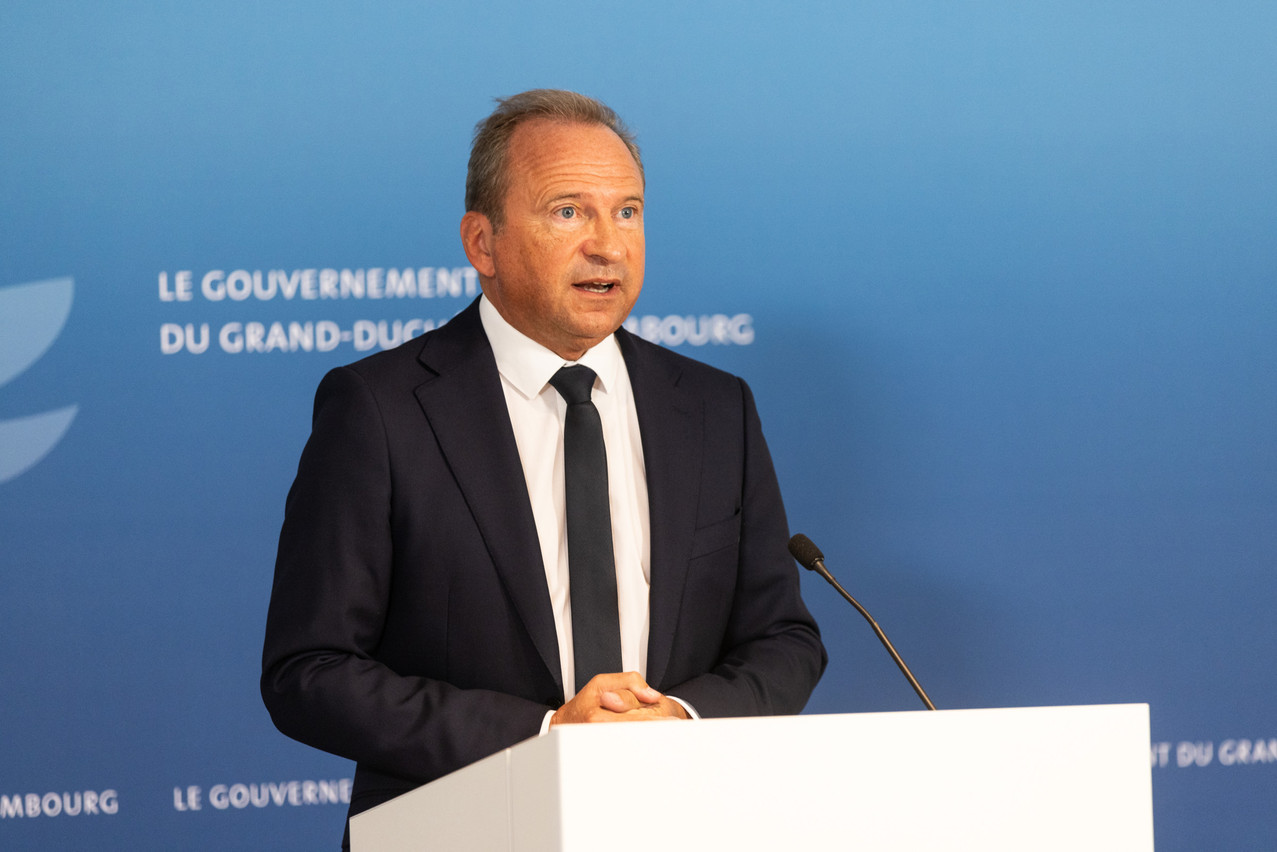In the first quarter of 2025, central government revenue stood at €7.578bn according to European SEC2010 accounting rules. This represents an increase of €723m compared with the first quarter of 2024.
The Luxembourg Inland Revenue (Administration des contributions directes, ACD) reported revenue of €4.284bn, which is €526.5m more than a year ago. Of this €526.5m, €521.1m came from corporate tax.
At €1.739bn, revenue from wages and salaries fell by €2.9m. This is a small decline given the adjustment to the income tax scale to neutralise 2.5 index brackets, the income tax exemption for people earning the social minimum wage and the exemption granted to single-parent households earning a gross annual salary up to €52,400.
The fall in registration fees--33.1% and €21.5m--is proportionately steeper. The minister attributed this decline to “the effect of measures to support housing, in particular the halving of the applicable tax base.” Overall, revenue collected by the Registration Duties, Estates and VAT Authority (Administration de l’enregistrement, des domaines et de la TVA, or AED) remained stable, rising by 2.7% to €1.881bn. Revenue from VAT and subscription tax rose by €40m and €28m respectively.
Revenue from customs and excise rose by 25.1% to €569.1m. This gain of €114.1m came exclusively from tobacco sales (+€128.4m). Whilst excise duty on petrol remained stable at €66.9m, duty from diesel sales fell by €18m to reach €119.6m.
A deceptive rise in spending
In the face of what minister (CSV) describes as “still positive revenue momentum,” expenditure rose by 12.2% to €7.578bn. It’s a deceptive increase that can be explained by a catchup effect due to the application of provisional twelfths in 2024, which had curbed spending at the start of the year.
“More than a quarter (27%) of this increase comes from direct and indirect investment, while subsidies for public transport, housing, the electricity price cap and others, as well as transfers--notably to municipalities, social security and for military spending--account for around 44% of this increase,” details the finance ministry.
The central government budget surplus thus stands at €337m. This is less than in 2024--when the figure stood at +€401m--but significantly better than in 2023 when, at the end of the first quarter, a deficit of €40m was recorded.
“We remain committed to supporting this positive revenue dynamic, which I am delighted about. In particular, it reflects the good performance of our financial sector and confirms our political action in favour of a strong welfare state, solid social cohesion and sustainable, inclusive growth,” the finance minister said to MPs.
This article was originally published in .
